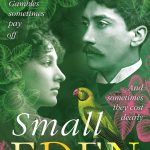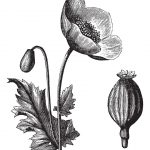My Books
Why Mountains Play a Role in Small Eden
The Wild Woman of Carshalton
It may be Robert Cooke’s story I tell in Small Eden, but his mother Hettie undergoes a transformation of her own. Hettie’s parents were mountaineers, who named her after the ridge route in the Scottish highlands where they first met. After her father meets his end traversing that very same route, this proves too much…
» Continue Reading
Here in the UK, we had the driest July since 1935, and the draught has continued into the first two weeks of August. And we Brits do not do hot weather well. But as I type I can hear a scattering of rain on the glass of the conservatory roof. The last time we had…
» Continue Reading
Know your place, boy!
Why social climbers were treated with suspicion in Victorian England
One of the defining features of the Victorian era – the era in which my novel, Small Eden, is set – was its rigid class system. The system and its success depended upon each and every person knowing their place. And if they didn’t know it, they’d soon be reminded of it. The Top Rung…
» Continue Reading
The First Lady Star of the Music Halls
A blog about Annie Adams
I was asked recently if I think that writing is an act of preservation. I have to say I do. I’m related on my father’s side of the family to the music hall star, Annie Adams. I haven’t been able to licence a photograph for publication, but the V&A has an image of Annie in…
» Continue Reading
A question of manners (part 1)
A post about Victorian etiquette
Etiquette (/ˈɛtikɛt, -kɪt/) noun. The customary code of polite behaviour in society or among members of a particular profession or group. What is Robert Cooke to do? A new century will soon be upon him and none of the women in his circle are behaving as he expects. Have they all forgotten the rules? Rule #1: Without…
» Continue Reading
A backward place of some 2500 souls
Robert Cooke's Carshalton
The setting for my tenth novel Small Eden is Carshalton, called Aulton in the earliest records, meaning Old Town. I have called it home for over twenty years. But what did it look like during Robert Cooke’s lifetime? The Wandle: leisure, industry and life Just eleven miles from Westminster-Bridge, the village of Carshalton is dissected…
» Continue Reading
In my tenth novel, Small Eden, I tell the story of how Robert Cooke creates a pleasure garden in memory of his infant sons. What exactly is a pleasure garden? The short answer is that it’s an outdoor space dedicated to pleasure. Before the eighteenth century, London had few places that fitted this description. Perhaps…
» Continue Reading
Pondering trees
Contemplating the loss of our horse chestnut
In our back garden, almost on the boundary with our neighbour’s garden, stands a lone horse chestnut tree. It has been here longer than our house, and our house first appeared on an Ordnance Survey map in 1903. This is the time of year when the tree is just coming into leaf and, as they…
» Continue Reading
In England’s green and pleasant land
Why I decided my leading man should be an opium grower
The discovery that Mitcham – only three miles from where I live – was once the opium-growing capital of the UK made me decide that Small Eden’s leading man, Robert Cooke, should be a physic (or physick) gardener. The term has fallen out of use, but it means a grower of medicinal or healing plants….
» Continue Reading
Setting free the parakeets
Adding to the urban myths about the origins of London's green ring-necked parakeets
No eden, small or large, would be complete without birds. Several species feature in Small Eden. First, we have the songbirds in the hedgerows and the pleasure gardens. There’s Hettie’s grey African parrot Fairfax (a personality in his own right). And then we have the green ring-necked parakeets Robert buys for his pleasure garden. I…
» Continue Reading








